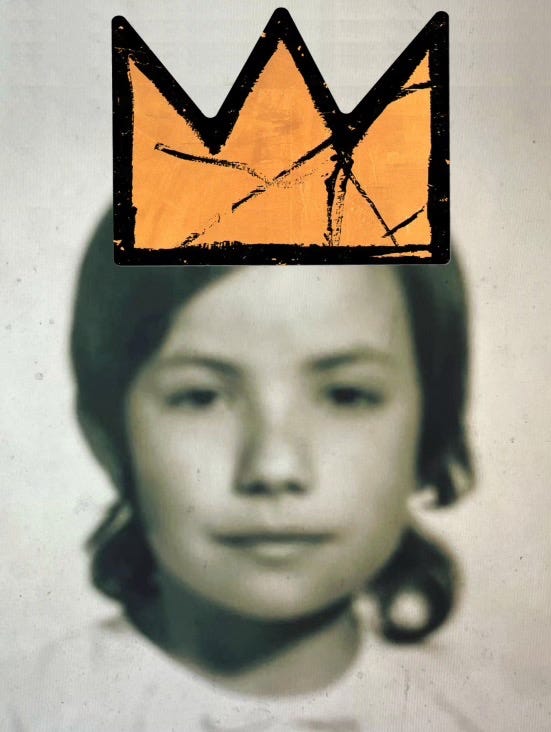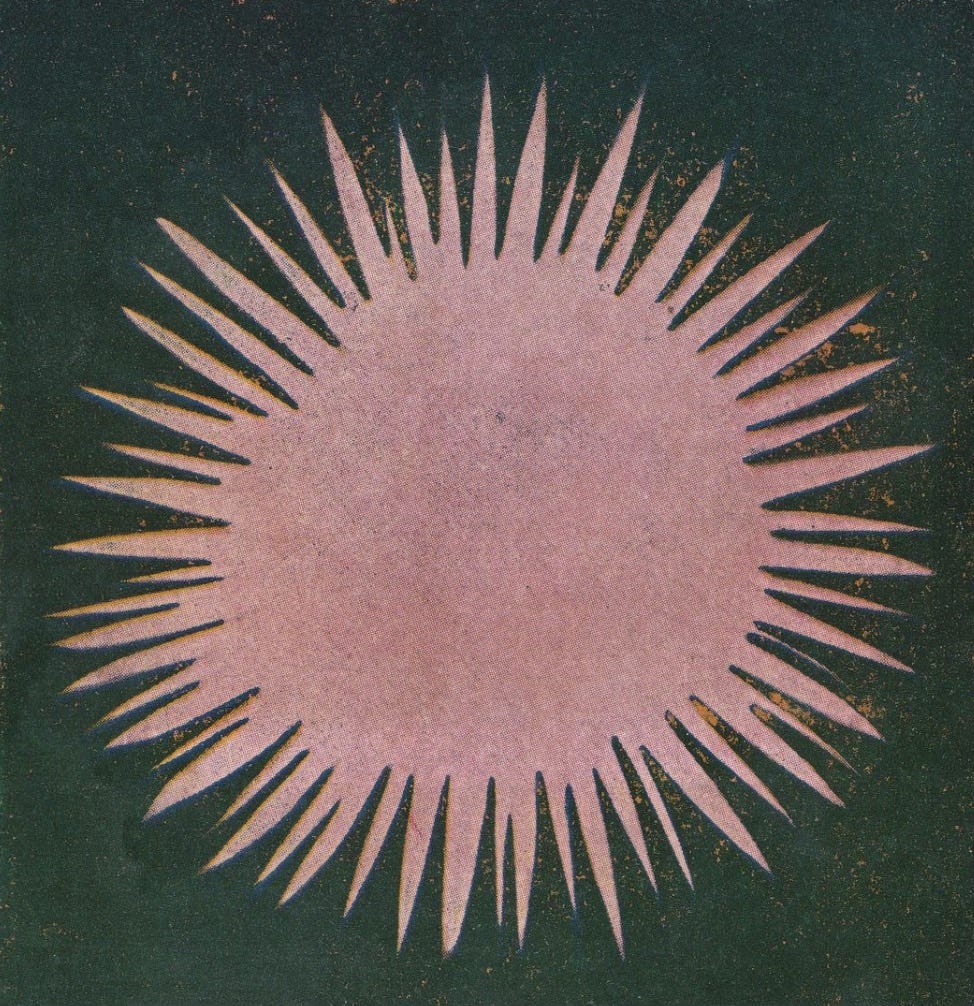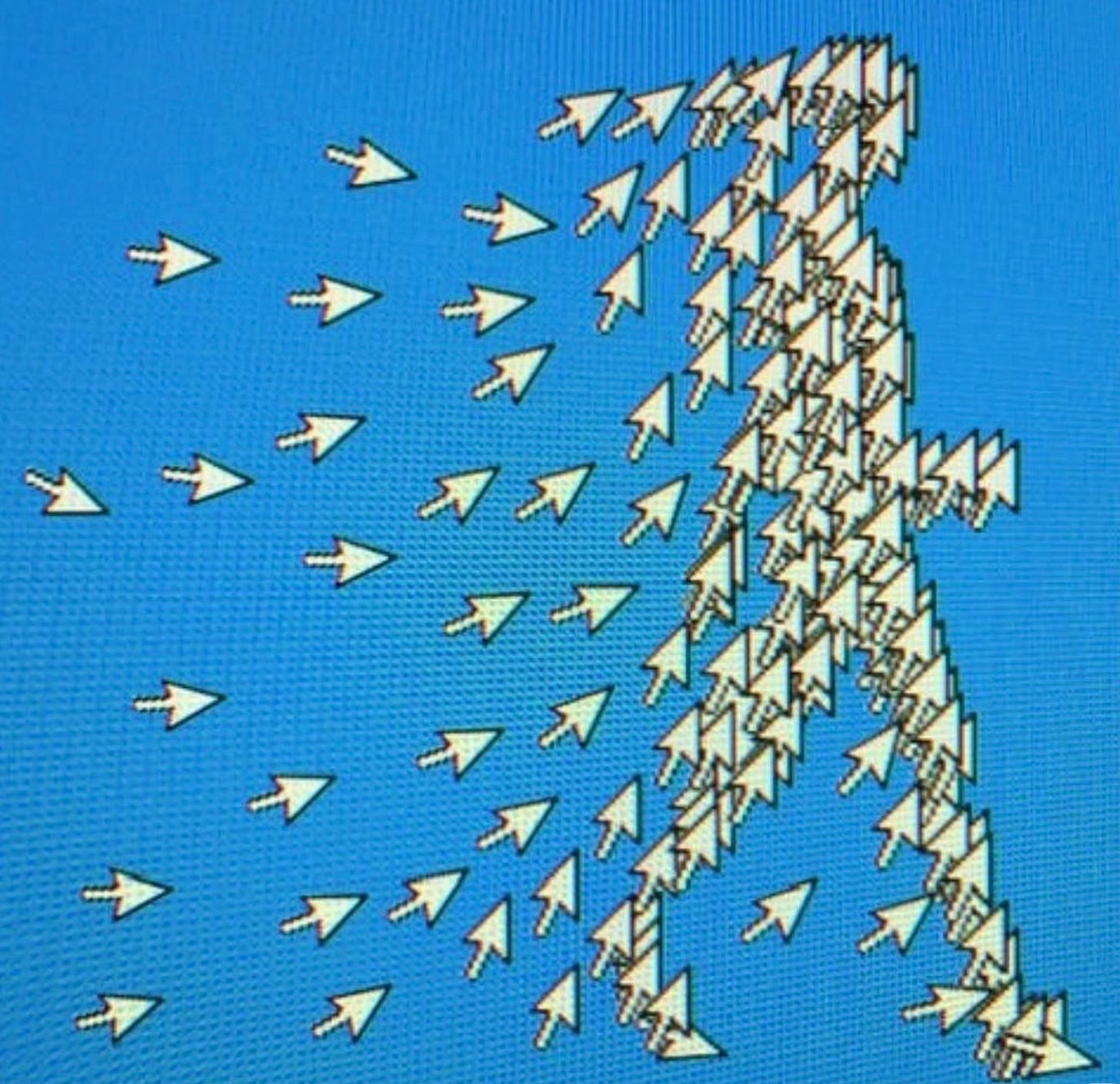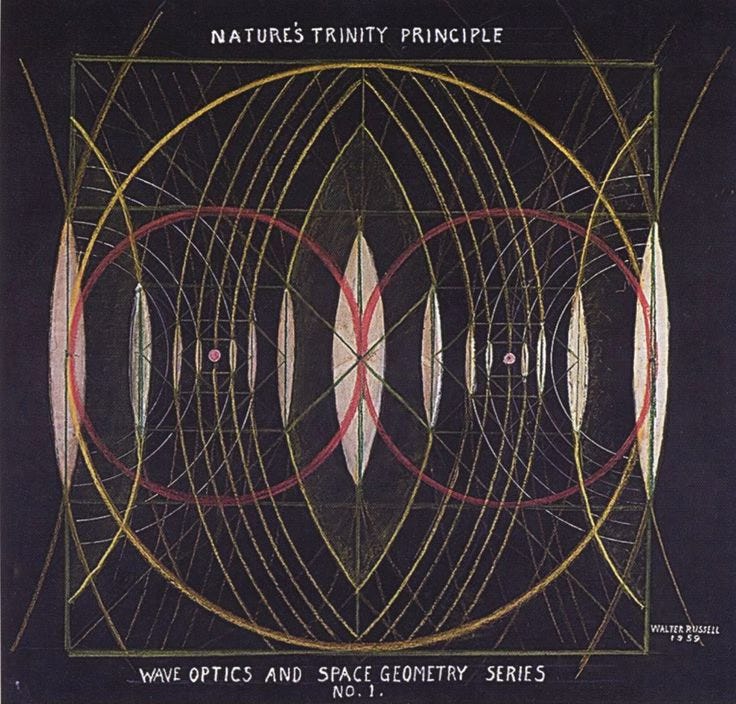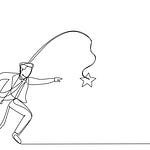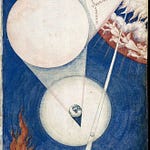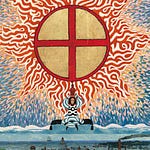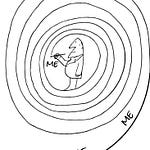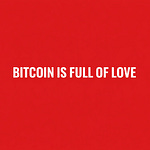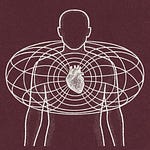Me, Me, Me, Me
So the other day during the session I was having with Mark, I was telling the story—reminds me of my mother, but it reminds me more about how I relate to myself through others. And I have Leo ruling my seventh house. What does that mean?
I spoke last week about relationships, so: relationships are ruled by the sign that is on the Descendant.1
So the way I relate to others, in a very Leo way, it’s all about my self-validation. It’s about shining in the relationship, or as my mom would say: me, me, me, me, or in Spanish: yo, yo, yo, yo, yo.
I think she was probably the first person, along with my father, that witnessed that my relationships were very self-centered. And as I said last article, I use the surface of a relationship—something, a person, or thing—to reflect and to project an image that I want to see, so I can integrate a part of myself that is on the other side. And once it’s integrated, that’s the goal.
But sometimes, still, even knowing all this, I would project something that I feel is lacking—or that I have in excess. Like, for instance, I’m very critical about something, and then I just realize after a while that, oh boy, I’m just speaking about the same feature—but I have it, but I have not integrated it. That’s why I see it in the other.
Anyway, let’s go back to 2004, probably 2003–04. I had started doing a lot of meditation, and I had found teachers, and I was in this joy trip of like, wow—silencing my mind is something I didn’t even know you could do. So I was enjoying it.
But as much as I was silencing my mind with all these Buddhist meditations and insight meditation practices, I started understanding what the Buddha said about, you know: first become aware of your breath. Then become aware of the felt sense. I want to talk about that felt sense later, because I don’t think I really understood that until later on, when I got into the work of Gabor Maté.
Because it was very abstract for me—to take care of my senses, or to pay attention to practice. And then it was like: be aware of your emotions. And that was where I was refocusing, because that was the main reason why I started asking some teachers to guide me that way—because I was very emotional—driven by my emotions. Since I was little, I didn’t have any distance between them and what was happening. I just didn’t know how to respond. I was always reactive.
And mostly with the Moon in Scorpio—emotions are very, very extreme. They’re like either: oh yes, or oh no. There’s nothing in between. So it made me very radical about many things.
So I’m doing these meditations, and I start quieting my mind, and starting to understand my emotional body. What was the practice? The process was like, you know: focusing on the breath cycle. And then—I’ll say it again—I did not understand very well the felt sense. I kind of knew what they were talking about, but I did not experience it. Because I would jump immediately to the emotion, and I would stay with the emotion. But I would label it, like: anger. Anger. This is the way it feels to be angry. That was it.
But even just doing that for a while made me acquire so much insight about what was going on. So I started getting very curious about how I was so reactive. And one day I decided to do an exercise. And there was no social media at the time, only email—the way you connected to people that cared for you.
So I remember I just picked like 20 people around my life—whether they were people I worked with or dealt with, or family or friends—and I decided to ask them. I remember the subject line was: “I will never ask for anything, and this is the only favor I will ever ask for. So feel free to do something about it, but if you don’t want to do it, just don’t do it.”
So I wrote: “Dear blah blah blah, I don’t know if you know, but I’ve been doing therapy for a while, and I’ve also been doing meditation, and this came up to me and I want to do this exercise. I want you to tell me, with all your honesty, what are the three things that you think are my strengths, and what are the three things that you think are my downfall. You don’t have to explain much, you just have to label them. And I will really appreciate it. I will not respond to this email. I will probably delete the email afterwards, because all I want to see is—I want to see how I respond to that. Thank you very much. Blah blah blah.” Sent the email.
I got a lot of responses. And this is where I learned that when people respond to you or react to something you say or do—it’s not about you. It’s about them. Because they’re projecting something on you. it is about how they relate to the question.
But hear me out. This was fun.
So I got a friend that just responded like: “What’s wrong with you? You’re getting me very worried. Why are you asking this type of question?” And I was just laughing, saying like: wow, this person doesn’t want too deep [lol]. But hey, you know, that was his response. It was a he BTW.
Then I had a removed cousin—that she called me up, and she’s like: “Are you okay? Maybe you should go to a real psychologist, like a real psychiatrist. Maybe they should give you pills because I think you are a little bit derailed.” And I was like: okay, thank you.
Then I had the friend that I thought we were okay—she just used this space to tell me all the things that she hated about me. But the email was pages long. So she had waited for an invitation from me just to tell me everything. And hey—whatever. I get it. I realized she actually hated me more than she loved me. And the way that—whatever she was saying—it wasn’t that it was right or wrong. It was like: wow, that was intense.
So I did not get into a confrontation. She actually wanted a confrontation. But I said I was not going to reply, and I never spoke about it. So I probably just gave her the space to say whatever she wanted to say, but she didn’t have the guts to say it to my face, so she used the mail for that. Whatever.
And so on and so forth. So I had that.
But one person who didn’t reply—well, she was not very good at emails—was my mom. So I asked her. And I was having vacation with her. So she wrote on a little piece of paper, and she was laughing and laughing and she was giggling. And then she gave it to me, and it said three words. It said: yo, yo, yo, In English: me, me, me, me.
I looked at her, and she looked at me, and we started giggling. And she said: “That’s all I remember Monika. Since you were born, it’s all about me, me, me, me, me, and this is no different.”
And I was like: wow. Wow. This is the way she sees me. She sees me as very self-centered—which could be true. Because hello, I’m speaking about me all the time. This blog is all about my perception of my life.
Lots of answers pointed to the same thing: my greatest strength was also my downfall. Like, I’m very intense and I never give up—so I always get what I want. On the positive side, I’m a go-getter. On the negative, they saw it as very intense energetically. (like Too much, I’d suppose.)
So let’s share the story, and we’re going to talk about that kind of perception—and how our embodiment is sometimes more analytical. Let’s say you have a Moon in Virgo, so you start saying things aren’t working. You have a Moon in Gemini, and your mind is jumping here and there and you could be very funny. Or you have a Moon in Aries—and I mean, if you thought Scorpio was all about me with extreme intensity, Aries doesn’t even know that there’s other people in the room. Forget about it. It’s all about them.
But in a different way, because—I guess that I’m speaking about my seventh house ruled by Leo in my chart. And just the way I interact with others—I make myself the center of the conversation. But I’m also curious about others. So I’m not just all about me. But I guess that my mom saw me like that.
My mom had her Moon in Virgo. So she was very critical about anything that I would tell. She would usually come and tell me the wrong stuff.
She very rarely said something good. And this was something that created a rift in our relationship, because I would say: “Mom, how come when I’m doing good stuff you don’t tell me?” Same responses I got from the headmaster of my school many times. It’s like, “Why should I praise you when you do good deeds?” And I would go like, “But why do you only yell at me or call me out when I do wrong things?” And they both agreed: integrity is something you should just have. Otherwise, it becomes about morality—and then you're just waiting to be called out.
And I think I got it after a while. I was like: okay, it is more challenging to do good than bad, but it’s worth it. So I was looking for attention—any attention, any validation. There was something amiss, and I would yearn for that sort of light to make me shine. My father’s death created a big void in my heart, and I was adapting as best as I could. It took decades to understand that the real light comes from within.
New Moon in Leo- the creative fire shines
There’s a New Moon in Leo on July 24th. That’s why I’m talking about me. My North Node is in the fifth house, which is represented by Leo. And I guess that for somebody who’s going in that direction—whether you have the North Node in Leo or in the fifth house, or you’re born with a Leo Moon or the Leo Sun, or you have the Sun in a very prominent part of your chart, let’s say the 10th house or in the seventh house—or the Sun in general—you just have to be aware: which is the part of yourself that wants to be validated, that wants to be seen, that wants to be listened to, that wants to be heard—that wants to be feel and be unique.
Because the Sun is our light. And your Sun is your light. This is the place that shows your authenticity. But depending on our conditioning—on our parents and how they did their best to raise us in society—this is also the part where we get entangled, where we get upset when we don’t get our way, if that’s what we’re after.
And so we can really start accommodating ourselves to try to fit. So you start losing your freedom and your identity from very early on, because you start looking around and see: oh, if I behave like this, maybe I don’t get that.
So this is my journey. This is my North Node. And how have I been anchoring that? Well, I would always be trying to fit in. Yes—me, trying to fit in group situations. But that’s the place where I suffer the most.
So nowadays, for instance, it’s not that I don’t like groups. It’s just—I choose very carefully how I want to be relating to people, situations, or things. Because I know that until I fully integrate it, there’s always going to be something missing. Somebody will say something about me, write something I don’t like. I don’t get picked for a job, like a commission. And right now I know better, so I don’t get reactive. I don’t take it personally, But it’s still a conversation with myself.
Going back to the Buddhist meditations, where I was skipping the felt sense in the four steps: acknowledging the breath, acknowledging the felt sense, acknowledging the emotions, and then getting the insights—or the synchronicities, as Jung would call them. The felt sense was something interesting. I remember reading a book—or getting into this guy—his name was Eugene Gendlin. He wrote a book called Focusing. This was the first time I started understanding that emotions could be felt in the body. It’s a method called Focusing-Oriented Therapy, and it’s all about this idea of the “felt sense”—how the body holds a kind of inner knowing. But at the time, I didn’t have the tools to really get to that. I understood it logically, but I needed to practice it.
Although I had a Taoist teacher-slash-practitioner where we would practice, and he instructed me how to do it—but there was a disconnection. I was so taken by my emotions since I was little that I didn’t have any distance between them and what was happening. So it took me years to kind of get into that.
And I remember when I got into that—you know, the whole somatic practice—I was like: holy shit. This is what I’ve been trying to learn for a while. But I was in my head. My head was racing. That’s what I was talking about last week. I was not embodying anything. I was just thinking, thinking, and labeling things, and feeling upset and angry. I was always very angry about not getting what I wanted, because I was trying so hard. But then I was not allowing the emotions to be in the body.
So I do personally think that doing somatic practice is what really changed me so much. And this came not long ago. It became very evident with the work I did with Gabor. It took a while. Because before that—you can see—I’m all mind: blah blah blah blah blah, always, always thinking. And so the mind is racing, and it has a very different speed than the body.
Because every time you have a New Moon in Leo, it’s like a new renaissance of how you want to embody this life in a way that is beautiful. It’s like: you’re beautiful. You’re so beautiful.
“The Sun is the source of individuality. It symbolizes the power to become a self. In Leo, that power seeks to radiate, to create life out of its own substance, to give birth to forms that express its identity. But this giving must be pure, or the light will become consumed by its own shadow.”
—Dane Rudhyar, The Astrology of Personality
Self-actualization
To paraphrase a little bit my teachers: the fifth house is a creative principle where the Soul, in this journey, wants to self-actualize. This is relating to the need to become the conscious co-creator of one’s reality, as Jeffrey Wolf Green would say. This archetype that also includes the Sun and Leo reflects the urge to express what is inherently unique within us—to shine without needing external validation. And I think that this one is the most important, because when you still want the validation, you have not integrated your light. You’re still counting, you’re still responding—or rather, reacting—to what other people are saying. But until the Soul has evolved to the point where it’s inwardly secure in its own light, there’s a need to be seen, applauded, or validated by others.
As the Sun is the source of our individuality, the power that it symbolizes is coming from wanting to integrate that as the self. So it’s about radiation—it’s to create life out of its own substance, to give birth to forms and express its identity. That’s why the Leo, fifth house, or the Sun relate to creative or artistic matters. It’s the fifth house of children, because children are the biggest creations that we can have—but also artistic endeavors. I have Venus in my fifth house and the North Node . So hello, artist here, writing here, look at me here—but I’m doing it for my own self-validation.
Now, going back to the Four Foundations of Mindfulness: I was practicing Theravāda Buddhism at the very beginning, before I started really seriously working with Thích Nhất Hạnh or Thầy, who was more from the Mahāyāna tradition. I really loved the simplicity of the Theravāda, which is—if you go into hierarchies—it’s the one closer to the Buddha. It extends to Laos, Thailand.
The Mahāyāna is what became Zen. You see it in Japan, in Vietnam, and now in America. So we have a lot of Zen influence, but also Theravāda.
I used to have a teacher I really loved—and I still love her, even though I no longer relate to her in the same way. Her name is Tara Brach. I learned so much from her. Back then, they weren’t called podcasts yet; they were audio files on web pages. I would listen to her meditations daily, meditate to the sound of her voice, and follow her dharma talks. I did that for years.
The practice was called Satipaṭṭhāna—the Four Foundations of Mindfulness in Theravāda Buddhism:
Kāyānupassanā is the mindfulness of the body: the breath, the posture, the movement.
Vedanānupassanā is the mindfulness of the feeling tone: pleasant, unpleasant, or neutral sensations—your felt sense.
Cittānupassanā is mindfulness of the mind: emotional and mental states—anger, joy, confusion. You see—I jump to that all the time.
Dhammānupassanā is the mindfulness of mental objects: categories like impermanence, hindrances, and truths. insights-
This is what I was practicing. It’s a progressive structure. It starts with the body, then the sensation, then the emotion, and finally the meaning.
But you see, because I was so overtaken by my emotions, I would start with the body and skip immediately to the emotion. Then I’d try to get to the meaning. God, I was racing, racing, racing.
Bottom line: this practice gave me, across time, an understanding of my emotions and felt sense. It supported the realization that I was trading my authenticity for false security. But it was the somatic practice that brought the felt sense in touch with my wound of not being seen—and that led me back to a state of presence.
How to Discern and See Clearly
If you’re still caught up by the narratives that are fed into your brain, and you allow them to become your life, it is very unlikely that you can discern your perception of reality from what is being told. The question is: how do you discern? How do you see clearly?
Although my answer might be biased because it is me speaking through my perception, it is about having as much possible education in how things work—and always starting with the money. Follow the money, and it will lead you to understanding how everything is so connected, and how much deception we have been unconsciously impregnated with.
There’s no such thing as these people are good or bad. It’s just the way it is. This is the difference between duality and polarity.
What I’m saying in this article is that if we keep our own authenticity, if we keep our own light, if we understand the real character of self-validation, we’re not going to go into a space of needing attention from others. And that’s when we get discernment. When you become sovereign and you have choices, then you don’t get confused. You are in tune with your frequency. We don’t see clearly because we are emotionally bound to a false frequency. The narrative doesn’t just shape our thoughts—it shapes our sensations.
This is why Barbara Hand Clow’s writing about the difference between the physical and emotional dimensions of perception is so precise. She’s not speaking about something far away; she’s speaking about the emotional body.
In the physical dimension, our attention is ruled by time, emotion, survival, and repetition. Our bodies hold cellular trauma that hasn’t been metabolized, and the repetition of those wounds makes us loop. That’s why clarity isn’t a spiritual quality. It’s an embodied one.
Clow writes:
“We are tuned to the physical dimension through the limbic brain, where the core experiences of birth, early emotional memory, and survival imprint the basic beliefs of the individual. These become difficult to access without going into the emotional field.”
In the emotional field, the emotional body begins to loosen; frequency becomes a way of reading the field, not reacting to it. She says:
“The emotional field is primarily the realm of the emotional body, where unresolved experiences are stored and released… Until these emotional polarities are balanced, our perceptions will be split.”
This is the distinction between polarity and duality. Polarity holds both ends. Duality separates them—and demands we choose sides. But frequency doesn’t lie. When we attune to it with presence, breath, and responsibility, we stop projecting and start perceiving.
And this is where the question of discernment is rooted. Not in mental knowledge, not in opinion, not in belief. But in the clarity of what the emotional body reveals—when one is not seeking to be seen.
Leo represents the Soul’s urge to create from the joy and abundance of the divine within. It is the field where one becomes a conscious co-creator of reality. But when this energy is blocked—by early restrictions or lack of feedback—it creates a deep grievance: nobody sees me, nobody cares. BOOO HOO HOO. The Leo archetype stands for the supreme expression of the ego of the individual. Here, the development of ego reaches its fulfillment through creativity and self-actualization, understood as the conscious emotional body.
Ego as in perception. If someone is still chasing applause, they haven’t integrated their light. The idea of ego death is bullshit. What’s needed is emotional awareness—because until a person is grounded in their own felt sense, they’re just drifting.
So the next phase becomes clear: the supreme expression of ego. Again: ego here is the conscious emotional body. This is the sense of self that becomes aware of emotional responses, of how reality is perceived—reactively or responsively.
When people say “this person has a lot of ego,” they may simply be seeing someone who isn’t conscious of how emotions are being felt, or even passing through the body. This is an electromagnetic current that must be acknowledged. It must be recognized so that life is not navigated by knee-jerk reactions.
But this is what is meant by ego. It’s not something to be killed. The notion of “ego death” is a distortion—a misuse that circulates in many current teachings.
Many teachers right now are trapped in their own bias. They are pushing thought over presence, mixing modalities out of fear.
One public example is the guru like- Aubrey Marcus. The issue isn’t him personally—it’s that the frequency he’s vibrating in is confused. Too much plant medicine. Too much outside attention. Not enough felt sense. Not enough attention to what is actually moving through the body. Not a single space for integration! So what’s reflected back is that same confusion and chaos. The people he attracts, the teachers he aligns with—they mirror the same distortion. And that’s his issue to work through.
This is what self-validation without clarity looks like.
There are other teachers too—ones once followed—that now speak from fear, even as they call it truth. And no, that’s not it.
The best teacher is the one who has done the work. And very few have. and that includes this writer—are not practicing it 100% of the time. That’s why this blog is an open notebook. To track what’s working, and what isn’t.
Barbara Hand Clow says:
“The bifurcation of particles and the existence of antiparticles mirror the human tendency to live in duality instead of polarity, which causes people to be violence prone. People annihilate the people who most closely mirror their own behavior, just as particles and antiparticles annihilate each other when they meet.”
She names this within quantum mechanics and the emotional field. She talks about how our split brains receive frequency and how perception is conditioned through electromagnetic translation. She makes clear how the emotional body is a field of reception. When it’s manipulated, people can’t access their own clarity. She writes:
“Once we are cut off from the emotional field, we can be manipulated through it. The Global Elite use the lower astral plane to feed fear into the collective field.”
I brought this up to clarify something important. The emotional body holds memory. This is what Mark Jones also writes about when he says:
“This leaves a residual post-traumatic stress that can be carried over from a prior life without even having a significant current-life trauma to trigger it.”
He’s naming that there is emotional fragmentation carried through the Soul. There is a tension between the structures we’ve internalized and the creative access we still have.
He writes that we struggle to identify and meet our own needs in the ways we could before the trauma. The memory is still active in the emotional field.
The Buddha laid out the foundations: breath, sensation, emotion, insight. That’s what I’ve been practicing. That’s where discernment starts.
Polarities to integrate:
It’s interesting because it’s in the fifth house that we self-validate. That we give ourselves the light we need in order to feel creative. Now, when we project into the polarity—that is Aquarius, Uranus, the eleventh house—this is the collective. These are the peers. This is the future. And when there’s no real grounding in how we feel connected to our own needs, when we don’t understand the difference between merging with the other intimately or staying with ourselves, we might create a tension between our need for validation and our relationship to what others are thinking.
So having an understanding of how this axis works is important, because Uranus—or Aquarius—offers the liberation of the frozen Leo wound. And that wound? That’s what we carry in the nervous system. That’s what’s held in the long-term memory of the body.
Mark Jones describes Uranus as holding memory beyond time. The trauma is there, but it’s not always visible. Saturn has crystallized it. Uranus disrupts it. It’s the moment the shock hits and you finally feel what you couldn’t access before. And once that happens, you begin to perceive differently. That’s why trauma is the antithesis of Leo. Because when you’re in trauma, you’re not in the present. You’re in reaction. You’re in defense. You’re fractured.
To quote the good old Gabor Maté: when we give away our security, we lose our authenticity.
So it’s important to look at what we need in order to stand our ground and be creative. Because once you are following your own authentic self, the collective is going to receive whatever it’s going to receive; but you’re not checking how many likes or dislikes, or how many people are being mean to you, or whether you’re invited to the most amazing party. Who cares. Really: who the F&K cares.
When you’re truly in your fifth house: when you’re in Leo, or your Sun: you don’t need other people’s light to be lit.
And right now, we are seeing so much distortion in the outside world. I’m not going to name names or talk about any files. But I’ll say this: in order to understand what’s going on, we cannot focus on the fogginess or confusion. We have to zoom out. Become more Uranian. Step into observation. Because there are so many threads connecting; but the most important one is this:
Your emotional body is deeply connected to the collective emotional field. If you’re not grounded in your own nervous system, you’re going to be swept away. You’re going to be adrift.
And the last thing I’ll say is this: I’ve been doing a practice for the last six months that’s really helping me come back into the body. Polyvagal work. Hypopressives. Humming. Chanting. Vibrational tone work. Breathing exercises. I’m tuning. I’m tuning. I’m tuning my frequency into the right dial.
That’s how you see clearly. That’s how you start to discern.
K ickstarter
So this New Moon is a kickstarter to the kind of life you would like to embrace creatively: honoring your spark and validating it from within, using no masks or personas. Courage is intrinsic, and joy is the only way.
The New Moon opposes Pluto in Aquarius2 and squares Chiron3 in late Aries on its own planetary South Node. Keywords: courage to take the space needed to be authentic, by allowing the transformation to emerge from the confrontation of old ways that must give in to a abundant, plentiful experience on Mother Earth. Rejoice, Earthlings: all dimensions4 are part of this beautiful physical experience if we give space to the electrical magnetic fields of instincts and emotion to then embody the architecture of what we most value: creation.
Relationships are ruled by the sign on the Descendant (the cusp of the seventh house). For example: if you’re an Aquarius rising, your Descendant is Leo; Virgo rising, Descendant is Pisces; Scorpio rising, Descendant is Taurus; Gemini rising, Descendant is Sagittarius.
As Pluto traverses Aquarius, it exposes the shadow of technological over-identification, mass surveillance, and collective alienation. This New Moon opposition invites us to confront those structures—not through paranoia, but through an inner confrontation with what keeps us emotionally split or externally compliant.
Chiron’s planetary South Node is currently at 28° Aries, conjunct transiting Chiron. This square emphasizes the release of old wounds and the confrontation with inherited patterns that block individuation. The New Moon in Leo initiates a return to the core of self-creation: anchored in inner coherence. Opposing Pluto in Aquarius, it confronts collective pressure, dissociation, and false belonging. This is a moment for embodied clarity and presence.
“All dimensions” refers to the integrated experience of instinctual, emotional, and physical fields—each representing layers of embodied awareness. When the magnetic fields of these layers are harmonized, perception becomes clear, and creation becomes coherent.




